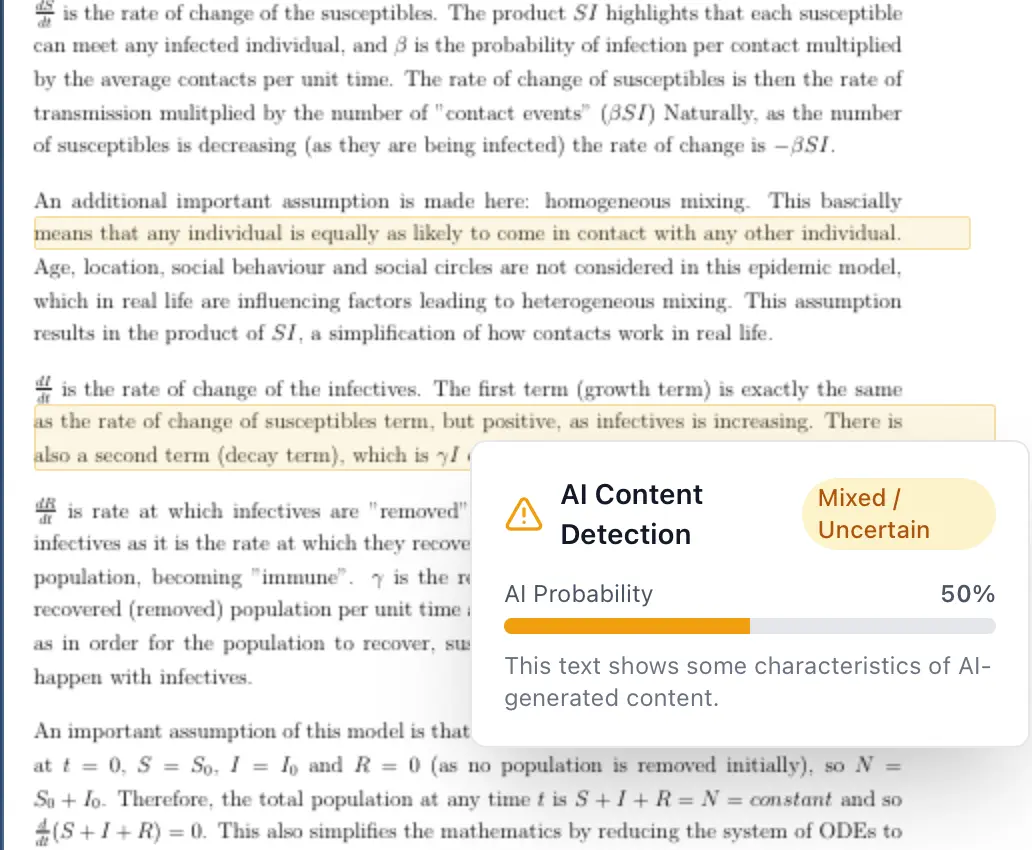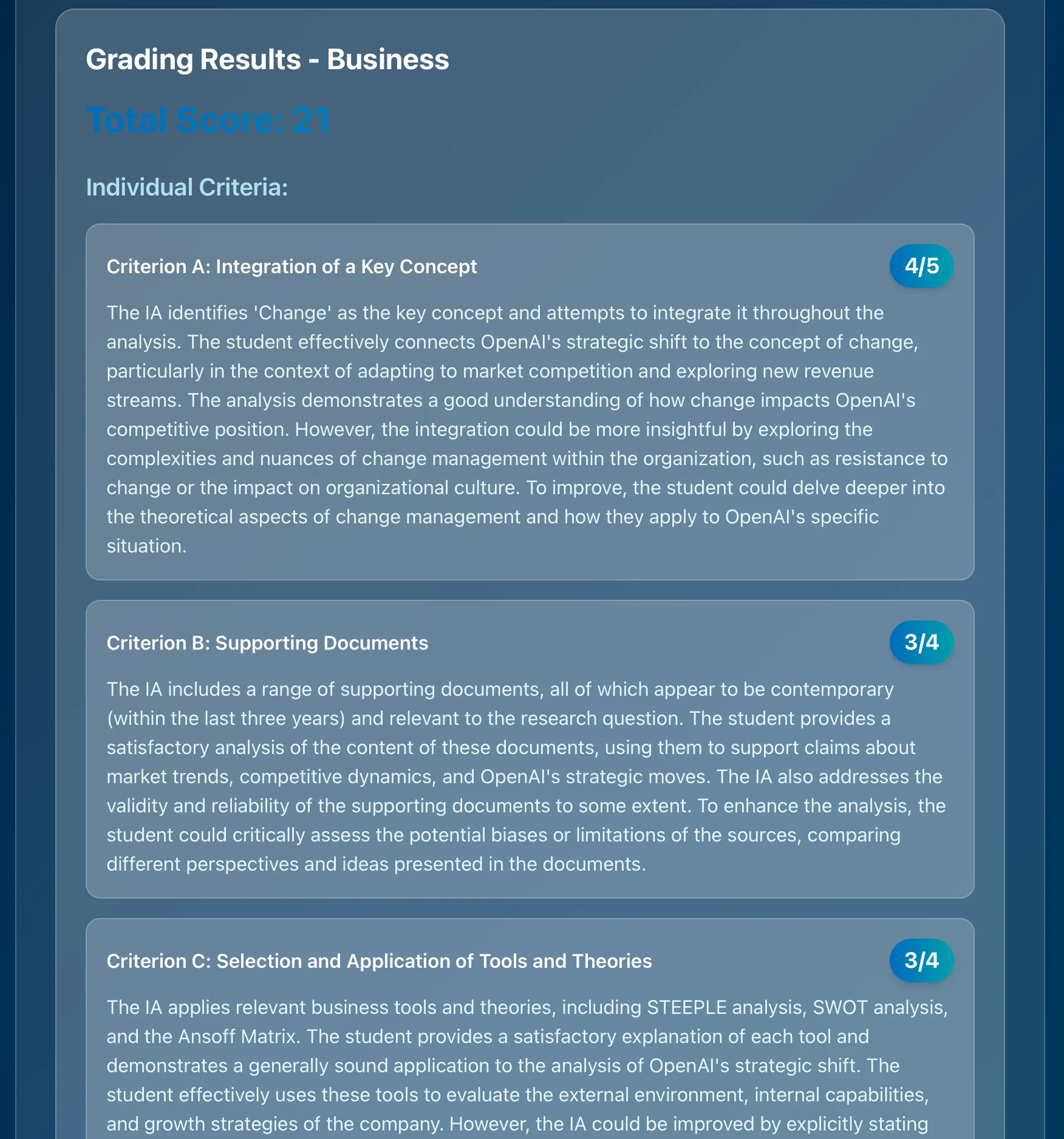CAS Hours Explained: Quality over Quantity
Creativity, Activity, Service (CAS) is a core component of the International Baccalaureate (IB) Diploma Programme, but it's not just about accumulating hours. The real value lies in the learning and personal growth you experience through meaningful engagement. This guide will explain everything you need to know about CAS, emphasizing the importance of quality over quantity and providing actionable tips to make your CAS journey a success. We'll explore how to choose impactful activities, reflect effectively, and ultimately, demonstrate the seven CAS learning outcomes.
Introduction: Understanding the Heart of CAS
CAS is more than just a requirement; it's an opportunity for you to step outside your comfort zone, develop new skills, and make a positive impact on the world. It’s about personal and interpersonal development through experiential learning. While tracking your hours is important for demonstrating commitment, the IB emphasizes the depth of your experiences and the reflections you make on them. This means focusing on activities that genuinely challenge you and allow you to grow, rather than simply filling a quota. Think of it as a journey of self-discovery and contribution, not just a checklist to complete.
Struggling with IB Assessments?
Get instant, detailed feedback on your work with AI that understands IB criteria.

What is CAS in the IB Diploma Programme?
CAS stands for Creativity, Activity, and Service. Each strand represents a different avenue for personal growth and engagement:
- Creativity: Exploring and extending ideas leading to an original or interpretive product or performance. This could involve anything from writing poetry to learning a new musical instrument to designing a website.
- Activity: Physical exertion contributing to a healthy lifestyle. This could include participating in sports, hiking, dancing, or even practicing yoga.
- Service: Collaborative and reciprocal engagement with the community in response to an authentic need. This involves addressing a real issue and working with others to create positive change. It's not just about volunteering; it's about understanding the needs of the community and working collaboratively to address them.
The aim of CAS is to develop students who are:
- Reflective thinkers
- Willing to show initiative
- Demonstrate perseverance
- Work collaboratively
- Engaged with issues of global importance
- Consider the ethical implications of their actions
The Seven CAS Learning Outcomes: Your Guiding Stars
The seven CAS learning outcomes are the foundation of the CAS program. They provide a framework for you to reflect on your experiences and demonstrate your growth. You need to provide evidence that you have achieved all seven outcomes by the end of your CAS experience. They are:
- Identify own strengths and develop areas for growth: Recognizing your skills and areas where you can improve.
- Demonstrate that challenges have been undertaken, developing new skills in the process: Stepping outside your comfort zone and learning new things.
- Demonstrate how to initiate and plan a CAS experience: Taking the lead and organizing your own activities.
- Show commitment to and perseverance in CAS experiences: Sticking with your activities and overcoming obstacles.
- Demonstrate the skills and recognize the benefits of working collaboratively: Working effectively with others to achieve common goals.
- Demonstrate engagement with issues of global significance: Addressing important issues that affect the world around you.
- Recognize and consider the ethical implications of choices and actions: Thinking critically about the consequences of your decisions.
Planning Your CAS Experiences: Quality over Quantity
The key to a successful CAS experience is thoughtful planning. Don't just jump into random activities. Instead, take the time to consider your interests, skills, and the needs of your community. Here's a step-by-step approach:
- Self-Reflection: What are you passionate about? What skills do you want to develop? What issues are you concerned about?
- Brainstorming: Generate a list of potential activities that align with your interests and the learning outcomes.
- Research: Investigate potential opportunities in your school, community, and beyond.
- Planning: Develop a detailed plan for each activity, including goals, timelines, and resources.
- Action: Put your plan into action and actively participate in your chosen activities.
- Reflection: Regularly reflect on your experiences, documenting your learning and growth.
Example: Instead of simply volunteering at a soup kitchen for a few hours each month (which is fine!), consider initiating a project to address food insecurity in your community. This could involve organizing a food drive, raising awareness about hunger, or even starting a community garden. This approach demonstrates initiative, collaboration, and engagement with an issue of global significance.
Documenting Your CAS Experiences: The Importance of Reflection
Reflection is a crucial part of the CAS program. It's not enough to simply participate in activities; you need to think critically about your experiences and document your learning. Use your CAS journal or online platform to record your reflections. Consider the following questions:
- What did you do?
- What did you learn?
- What challenges did you face?
- How did you overcome those challenges?
- How did this experience impact you?
- How did this experience impact others?
- How did this experience relate to the CAS learning outcomes?
Example: After participating in a beach cleanup, you might reflect on the amount of plastic pollution you found, the impact of pollution on marine life, and the importance of reducing your own plastic consumption. You could also reflect on the collaborative effort involved in the cleanup and the sense of accomplishment you felt after making a positive impact.
Pro Tip: Get AI-Powered Grading
Stop second-guessing your grades. Get instant feedback aligned with official IB rubrics.

Common Challenges and Mistakes in CAS
Students often face several challenges when completing their CAS requirements. Here are some common mistakes and how to avoid them:
- Lack of Planning: Starting activities without a clear plan can lead to disorganization and a lack of meaningful learning. Solution: Develop a detailed plan for each activity, including goals, timelines, and resources.
- Passive Participation: Simply going through the motions without actively engaging in the experience. Solution: Be proactive, take initiative, and seek out opportunities to learn and grow.
- Superficial Reflections: Writing generic reflections that don't demonstrate genuine learning. Solution: Dig deep and think critically about your experiences. Be honest and specific in your reflections.
- Focusing on Quantity over Quality: Trying to accumulate as many hours as possible without considering the depth of the experience. Solution: Prioritize meaningful activities that challenge you and allow you to grow.
- Leaving it to the Last Minute: Waiting until the end of the IB program to start your CAS activities. Solution: Start early and spread your activities throughout the two years.
- Not connecting activities to the learning outcomes: Failing to explicitly link your experiences to the seven CAS learning outcomes. Solution: Review the learning outcomes regularly and reflect on how your activities are helping you achieve them.
Advanced Tips and Strategies for CAS Success
Here are some advanced tips to help you excel in your CAS journey:
- Embrace Failure: Don't be afraid to try new things, even if you're not sure you'll succeed. Failure is a valuable learning opportunity.
- Seek Mentorship: Connect with teachers, community leaders, or other individuals who can provide guidance and support.
- Be Creative: Think outside the box and come up with innovative ways to engage in creativity, activity, and service.
- Connect with Your Passions: Choose activities that align with your interests and values. This will make the experience more enjoyable and meaningful.
- Document Everything: Keep a detailed record of your activities, reflections, and learning. This will be invaluable when you're writing your final CAS report.
- The CAS Project: This is a collaborative service project that lasts at least one month. It’s an opportunity to demonstrate initiative, perseverance, and collaboration. Plan carefully and choose a project that addresses a real need in your community.
Technology and Modern Assessment: How AI Can Help
Technology is transforming the way we approach learning and assessment in the IB program. AI-powered tools are becoming increasingly valuable for both students and teachers.
For example, AI can help students identify areas for improvement in their reflections by analyzing their writing and providing feedback on clarity, depth, and connection to the learning outcomes. It can also suggest relevant resources and activities based on their interests and goals.
For teachers, AI can streamline the assessment process by providing consistent, detailed feedback on student work. Marksy, as a leading AI grading assistant, helps teachers provide consistent, detailed feedback on IB assessments, saving them valuable time while ensuring that students receive accurate and personalized guidance. Marksy uses official IB criteria to ensure accuracy and fairness, allowing teachers to focus on providing individualized support to their students. This ensures that assessment is both efficient and effective, promoting a deeper understanding of the CAS learning outcomes.
Conclusion: Your CAS Journey Awaits
CAS is a unique and valuable component of the IB Diploma Programme. By focusing on quality over quantity, planning thoughtfully, reflecting deeply, and embracing the opportunities for growth, you can make your CAS journey a truly transformative experience. Remember, it's not just about accumulating hours; it's about developing into a well-rounded, engaged, and compassionate individual.
Ready to take your IB journey to the next level? Try Marksy for free today and experience the power of AI-driven feedback to improve your scores and streamline your grading workflow!